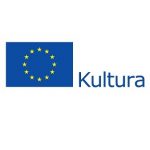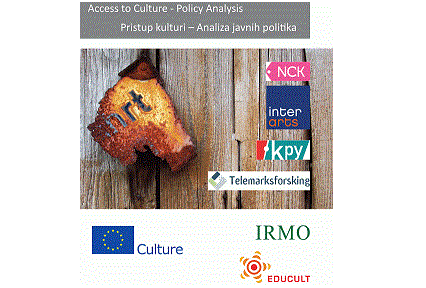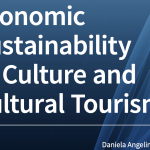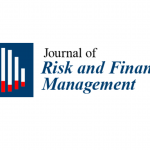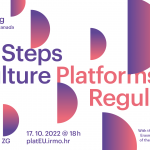The final report of the research and cooperation project Access to Culture – Policy Analysis has been published. The project was executed by six partner institutions (including IRMO Department for Culture and Communication) in the period from May 2013 to April 2015, and it was financed by the European Commission’s Culture Programme.
During two years of the project’s activities, project partners – project coordinator EDUCULT (Austria), Foundation Interarts (Spain), The Nordic Centre for Heritage Learning and Creativity AB (Sweden), Telemark Research Institute (Norway), the Cultural Policy and Management Research Centre at Istanbul Bilgi University (KPY, Turkey) and Institute for Development and International Relations (IRMO) from Croatia – have, through their research activities, tried to contribute to understanding of how EU agendas and policies impact on Access to Culture policies at national levels and how future policy settings on the European level can inspire more efficient strategies to foster access to culture.
The project’s research results ‘Access to Culture – Policy Analysis. Final Report’ have been published online to enable its dissemination to the wider audience. The project investigated the European and national dimensions of Access to Culture, analyzing and comparing the implementation instruments and mechanisms of the policies on Access to Culture in different countries with the aim of developing policy recommendations for raising awareness about these issues both at the national and at the European level.
The introductory part of the Final Report gives an outline of the various discourses on this issue and offers a detailed overview of the existing literature that includes documents presenting the relevant policy framework, as well as research reports and studies on the European level. The central part of the report consists of two chapters. One chapter is dedicated to the comparative study of access policies in six analyzed countries (Austria, Croatia, Spain, Sweden, Norway and Turkey), investigating different approaches and understandings of the Access to Culture concept and analyzing the national political objectives in a comparative context. In addition to the focus on the policy analysis at the national level, the project investigated whether and how policies and practices of Access to Culture can contribute to democracy, foster social inclusion or open cultural institutions to under-represented groups, through policy instruments such as those focusing on mobility of arts, artists and audiences, the digitalization of culture, etc. The analysis of these transversal issues has been presented in a separate chapter of the report. In its’ final part, the Report gives overview of the existing indicators for cultural participation on national and European levels, thus contributing to better data collection in Europe. The Report concludes with a list of recommendations for policy-makers on national as well as on European levels that are oriented to the inclusion of the more explicit policies towards access to culture issues. In addition, the Annex of the Final Report contains six detailed national reports on access to culture issues from project partner countries – Austria, Croatia, Spain, Sweden, Norway and Turkey.
LINKS
-
- More about the project – EDUCULT.
- Project – Access to Culture – Policy Analysis
- IRMO organized round table discussion “Perspectives of cultural policy development: access, cultural participation and new audiences”
- Announcement: Round table ‘Perspectives of cultural policy development: access, cultural participation and new audiences’
DOWNLOADS
-
- Final report: ‘Access to Culture – Policy Analysis. Final Report’.
- Final report with Annex: ‘Access to Culture – Policy Analysis. Final Report’.
